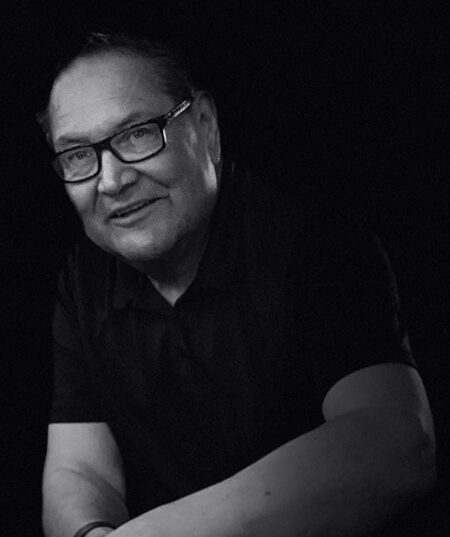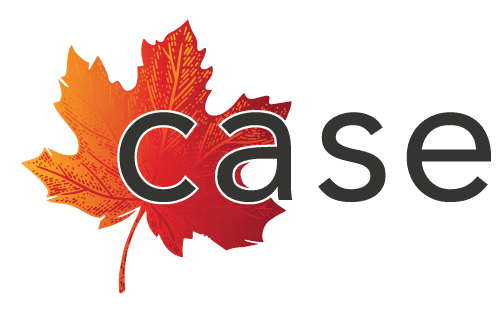True Allyship Supports Indigenous Workers Experiencing Disability: An Interview with Johnathon Red Gun
True Allyship Supports Indigenous Workers Experiencing Disability
An Interview with Johnathon Red Gun
For the French version of this post, please click here. | Pour la version française de cet article, veuillez cliquer ici.
Johnathon Red Gun, also known by his given name Aapaiksi’konnista, is a traditional Blackfoot (Niitsitapi) Elder from Siksika Nation in Treaty 7 territory. As a Grandfather and Knowledge Holder, Johnathon teaches the Blackfoot Way of Life, Learn from Place, and the Blackfoot language.
For almost two decades, Johnathon has been the Disability Employment Coordinator for Community Futures Treaty Seven (CFT7). We spoke with Johnathon about the employment challenges faced by Indigenous workers experiencing disability and how mainstream service providers and employers can work towards workplace equity.

Community Futures Treaty Seven
CFT7 is the holder of the southern Alberta Indigenous Skills Employment Training Strategy and works with First Nations in the Treaty 7 region to allocate resources. Treaty 7 includes the urban centres of Calgary, Red Deer, Medicine Hat, and Lethbridge and five rural First Nations communities.
Johnathon’s position is the only one dedicated to employment services for Indigenous persons experiencing disability within this expansive region. With his large and diverse portfolio, his days are filled with collaborating with 11 regional Indigenous Career Centres, building relationships with mainstream service providers and businesses, promoting inclusive hiring at employment events, and many other related activities.
Employment Challenges for Indigenous Workers Experiencing Disability
During his almost two decades at CFT7, Johnathon has witnessed multiple employment challenges faced by Indigenous workers experiencing disability. Some challenges, such as a lack of daycare or transportation options, have evolved over the years as they have been partially addressed by technology for some workers.
New online platforms like Zoom and Teams have facilitated remote work, especially during the pandemic. Workers experiencing disability who had COVID or faced daycare or transportation barriers could continue to work remotely or attend training from home, a trend that fortunately continues. However, not all Indigenous people, particularly those in rural or remote areas, have access to a computer and a reliable internet connection needed for remote work.
Other challenges have remained over the years, such as addressing the different needs of workers in rural and urban centres and the chronic underfunding of supported employment for Indigenous persons experiencing disability. Some of the career practitioners at the Indigenous Career Centres have caseloads of up to 300 people, which does not allow for effective or sustainable services.
Challenges related to prejudice and discrimination are also still prevalent. Experiences with discrimination and their emotional toll can affect Indigenous job seekers, particularly in urban areas where more businesses and employment agencies are non-Indigenous.

Achieving Workplace Equity Requires Understanding Colonialism
To achieve workplace equity for Indigenous persons experiencing disability, non-Indigenous Canadians must first understand that colonialism is not a historical event. The European models for political, economic, academic, and cultural structures imposed in Canada — whose original purpose was to profit from human and land-based resources — are still in use today. These entrenched, underlying structures continue to put up systemic barriers for Indigenous peoples, including workers experiencing disability.
Canada’s Indian Act created residential schools and reserves, made cultural practices illegal, and restricted participation in the economy and at university. The Indian Act had a decimating impact on the economic and cultural well-being of Indigenous communities, impacts that are ongoing today.
Compounding this is ableism that, contrary to Indigenous values, mistakenly views persons experiencing disability as less productive and as having lower potential and economic value.
To dismantle discrimination and ableism, ongoing learning (and unlearning) and self-reflection are essential for non-Indigenous Canadians.
Reciprocal Relationships Strengthen Outcomes for Indigenous Workers Experiencing Disability
Johnathon emphasizes the importance of reciprocal relationships for successful employment outcomes for Indigenous workers experiencing disability. As an example, for 16 years he has collaborated with Sean McEwen, a workplace EDI and culture consultant with RealEyes Capacity Consultants and past director with various employment inclusion service providers and networks in Calgary. Sean is also a past board chair of the Canadian Association of Supported Employment (CASE).
Over the years, Johnathon and Sean have shared resources and knowledge, have invited each other to events, and have collaborated on strategies and projects. Johnathon discussed Indigenous ways to support workers and Sean shared mainstream supported employment practices. This reciprocity strengthened supported employment programs and services for both Indigenous and non-Indigenous workers experiencing disability.
Johnathon describes this reciprocal relationship as true allyship based on lifelong learning.
How to Build Reciprocal Relationships and True Allyship
“What’s most important for Community Futures Treaty Seven is to collaborate and work together with mainstream agencies, with employers, and with other Indigenous nations coming to our territory.”
Johnathon Red Gun
Supported employment service providers and employers can transform commitment to action to build employment equity for Indigenous job seekers and workers. In the spirit of collaboration and reciprocity and to be good neighbours:
- Ensure cultural awareness training for all staff. Truth and reconciliation is an ongoing process.
- Attend Indigenous organizations’ employment events to make connections and to share resources and knowledge.
- Learn from place. Some needs of Indigenous workers may be place based, or related to their nation’s cultural practices, and it can be challenging for them to find suitable support. Research and learn about relevant local nations to discover what their workers might need.
- Reach out to Indigenous employment organizations in your area for assistance. While Johnathon is familiar with the Blackfoot Nation and its cultural practices, he is not familiar with the practices of other Nations, so he has connections with many of them. Employers and service providers in southern Alberta can reach out to him to check whether he has the contact information they need for a specific nation.
- Be willing to open your mind to cultures outside the box. “Employers need to access new perspectives to make their workplace more accessible and resilient.”
- Familiarize yourself with the Truth and Reconciliation Commission of Canada’s Calls to Action. These calls to action were developed to guide Canadians on their journey of reconciliation. The Business and Reconciliation section is on page 10 (page 14 of the pdf).
Johnathon shared these parting words:
Indigenous people with disabilities are often marginalized. Settler-run organizations are the best positioned to make a difference, and it’s also their responsibility to take up Truth and Reconciliation Calls to Action. Those calls to action weren’t written for Indigenous people, they were written for settlers.
An important consideration is Indigenous knowledge and perspectives, for example Blackfoot Ways of Knowing and Learn from Place for my nation. If you think of culture as a box, most Canadians are thinking inside their box. The most valuable Indigenous perspectives come from outside the box.
Accessing Indigenous cultural knowledge and perspectives involves opening your mind to such things. That is how settlers will see strengths they haven’t seen before — strengths that we can use together as a community, as good neighbours.
Additional Resources
- Position paper developed by Community Futures Treaty Seven for CASE’s Innovation Lab: Indigenous Experience with Disability and Employment
- CASE Blog: Enhancing Workplace Inclusion for Indigenous Workers
- CASE Blog: National Day for Truth and Reconciliation: Taking Truth to Action

